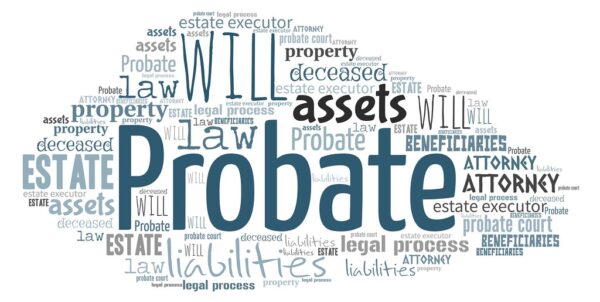The death of a loved one is always difficult. In the midst of grieving, there are also important legal and financial matters that must be addressed. One of these tasks is filing for probate after someone passes away.
Probate is the court-supervised process of distributing a deceased person’s property and assets. It involves identifying assets, paying debts and taxes, and distributing what’s left to the heirs and beneficiaries. Probate can be a complex and lengthy process if the estate is large or contentious.
In North Carolina, probate proceedings are handled by the clerk of court in the county where the deceased person lived. There are important deadlines for starting probate and completing certain steps. Read on to learn about key probate timelines and filing deadlines in North Carolina.
What is Probate, and When is it Required?
Before getting into the various deadlines, it helps to understand probate. Probate is the legal process that happens after someone dies. It involves identifying assets, paying debts and taxes owed, and distributing property to heirs.
The probate process typically involves:
- Petitioning the court to open probate and appoint an executor or personal representative
- Notifying creditors so they can make claims against the estate
- Making an inventory of the deceased person’s assets and debts
- Paying valid creditor claims, taxes, and expenses
- Distributing remaining assets to beneficiaries under the will or heirs under intestacy laws
In North Carolina, probate is required if the deceased person owned any real estate or other assets solely in their own name at death. Probate can usually be avoided if all assets are passed to others through joint tenancy, beneficiary designations, trusts, etc.
If probate is needed, there are important deadlines for starting the process and completing certain steps. Let’s look at some key probate timelines in North Carolina.
Timeline for Starting Probate
In North Carolina, probate should be started promptly after someone dies. Ideally, the petition to open probate should be filed within 60 days of death.
Filing to open probate involves petitioning the probate court to appoint an executor or personal representative who will oversee the process. This starts the legal probate proceeding.
While 60 days is the recommended timeline, technically, an estate can be opened later. But delaying too long can cause problems. The court may become concerned if no one has petitioned for appointment as executor within a reasonable time.
Starting probate promptly allows the executor to access accounts and begin marshaling assets. It also starts the clock running on creditor notice requirements (discussed below).
Deadline for Using a Small Estate Affidavit
Some smaller, uncomplicated estates may be eligible to use a shortcut process called a small estate affidavit. This allows claiming property without a full probate proceeding.
In North Carolina, a small estate affidavit can be used if:
- The value of the estate is $20,000 or less, OR
- The value is $30,000 or less and the spouse is the sole beneficiary
When using a small estate affidavit, there is a short waiting period required. Under NC Gen. Stat. § 28A-25-1, the small estate affidavit cannot be filed until 30 days after the date of death.
This 30-day period allows time for any will to be filed or for an executor to petition to open probate. If neither happens after 30 days, a small estate affidavit can be used to collect assets instead.
Deadline for Notifying Creditors
One of the most important requirements in probate is properly notifying any potential estate creditors. This allows creditors to file claims for debts owed by the deceased person.
In North Carolina, the executor or personal representative appointed by the probate court is responsible for providing formal notice to all known and reasonably ascertainable creditors. According to NC Gen. Stat. § 28A-14-1, this notice must be sent within 75 days after the personal representative is appointed.
The notice must be sent by first class mail and must notify creditors that they have just 3 months from the notice date to file any claims against the estate. Strictly complying with creditor notice requirements is crucial.
Deadline for Filing Inventory with Probate Court
Another timeline in the probate process relates to filing an inventory of estate assets and debts. Under NC Gen. Stat. § 28A-20-1, the personal representative must file a complete inventory with the probate court clerk within 3 months after being appointed.
The inventory must list all assets owned by the deceased person at death, as well as any known debts or liabilities. This accounting allows the court to oversee the estate administration.
While 3 months is the maximum timeline, the inventory can and should be completed sooner if the estate is uncomplicated. The court can grant an extension if more time is reasonably needed.
Deadline for Filing a Caveat to Contest the Will
North Carolina allows interested parties to contest the validity of a will by filing a caveat with the probate court. This must be done within a strict timeframe.
Under NC Gen. Stat. § 31-32, a caveat objecting to the probate of the will must be filed within 3 years from the later of:
- The will being admitted to probate, OR
- The executor qualifying (being appointed)
So, in effect, heirs or beneficiaries have up to 3 years to challenge the will’s validity. But it’s best not to wait too long if you want to contest. Once assets are distributed, it becomes much harder to undo probate, even if still within the timeframe to file a caveat.
An experienced North Carolina probate attorney can advise whether you have grounds to contest a will and the procedures involved.
How Long Does Probate Process Take in North Carolina?
There is no fixed timeline for completing probate in North Carolina. The length of probate depends on the estate’s complexity and whether any disputes arise.
For a simple estate with no conflicts, probate can potentially be completed within 6-12 months. Larger or contested estates often take 12-18 months. Very complex estates could take several years.
The executor cannot make final distributions and close probate until all claims are settled, taxes are paid, and administration is complete. Beneficiaries should not expect to receive inheritances until the process is finished.
Act Quickly to Start Probate in North Carolina
If you have recently lost a loved one, our condolences. The attorneys at Apple Payne Law are here to help guide you through probate in North Carolina. Contact us today to schedule a consultation and learn more about your options. We assist families throughout North Carolina with estate administration and probate litigation matters.















